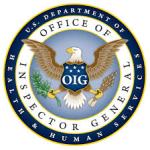The Office of the Inspector General and General Services Administration works to prevent fraud and abuse of all kinds. When it comes to the healthcare industry, there is a special list called the OIG GSA Exclusion list that compiles together every company or organization that has misdemeanor convictions for any kind of fraud or abuse.
The definition of these terms and the statute of limitations for each can be complex. It is not uncommon for the OIG to make mistakes on this list. If you believe you have been added to the list erroneously, contact Florida Healthcare Law Firm today for assistance.
What Is the OIG GSA Exclusion List?
The Office of the Inspector General and General Services Administration has the right and power to identify companies and individual providers as unable to access any federal funding. These companies and providers are all put onto the OIG GSA Exclusion List to ensure that they will not receive federal funding from the federal government. In addition, they cannot contract with companies that are using federal funding to pay for the contracted service or item.
Why Would a Company or Provider End Up on the OIG Exclusion List?
A provider or company may find themselves on the OIG Exclusion List for a number of reasons, including but not limited to Medicaid or Medicare fraud, patient abuse, or substance abuse.
It is important to note that the consequences for working with someone on the OIG Exclusion List in such a way that they are the recipient of federal funding for any reason, directly or indirectly, is punishable by fines and citations.
How Do I Find Out Who Is on the OIG Exclusion List?
If you are not sure if you are currently on the OIG Exclusion List, if you’d like to see if you or your company’s name has been removed after hard work to get off the list, or if you are considering contracting a healthcare company and want to make sure that they are not on the list, you can go to the Office of Inspector General’s website and click the link that says List of Excluded Individuals/Entities (LEIE).
This will automatically download a CSV file to your computer with the most recent version of the list.
How to Get Off the OIG Exclusion List
The process of getting off the OIG Exclusion List is simple but not easy. You will need to email a written request that includes all of the relevant contact information of the individual or company, including the birthday of an individual to [email protected].
If you are eligible for removal, the OIG will respond with the forms you will need to complete.
If they disagree that you are eligible for removal and you would like to fight back for removal, contact us at Florida Healthcare Law Firm today to get the help you need.


 By:
By: 




